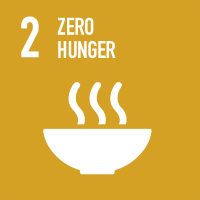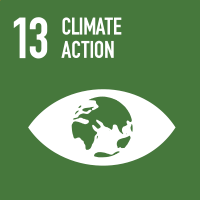Studying at the University of Verona
Here you can find information on the organisational aspects of the Programme, lecture timetables, learning activities and useful contact details for your time at the University, from enrolment to graduation.
Type D and Type F activities
This information is intended exclusively for students already enrolled in this course.If you are a new student interested in enrolling, you can find information about the course of study on the course page:
Laurea magistrale in Biotecnologie agro-alimentari - Enrollment from 2025/2026Le attività formative di tipologia D sono a scelta dello studente, quelle di tipologia F sono ulteriori conoscenze utili all’inserimento nel mondo del lavoro (tirocini, competenze trasversali, project works, ecc.). In base al Regolamento Didattico del Corso, alcune attività possono essere scelte e inserite autonomamente a libretto, altre devono essere approvate da apposita commissione per verificarne la coerenza con il piano di studio. Le attività formative di tipologia D o F possono essere ricoperte dalle seguenti attività.
1. Insegnamenti impartiti presso l'Università di Verona
Comprendono gli insegnamenti sotto riportati e/o nel Catalogo degli insegnamenti (che può essere filtrato anche per lingua di erogazione tramite la Ricerca avanzata).
Modalità di inserimento a libretto: se l'insegnamento è compreso tra quelli sottoelencati, lo studente può inserirlo autonomamente durante il periodo in cui il piano di studi è aperto; in caso contrario, lo studente deve fare richiesta alla Segreteria, inviando a carriere.scienze@ateneo.univr.it il modulo nel periodo indicato.
2. Attestato o equipollenza linguistica CLA
Oltre a quelle richieste dal piano di studi, per gli immatricolati dall'A.A. 2021/2022 vengono riconosciute:
- Lingua inglese: vengono riconosciuti 3 CFU per ogni livello di competenza superiore a quello richiesto dal corso di studio (se non già riconosciuto nel ciclo di studi precedente).
- Altre lingue e italiano per stranieri: vengono riconosciuti 3 CFU per ogni livello di competenza a partire da A2 (se non già riconosciuto nel ciclo di studi precedente).
Tali cfu saranno riconosciuti, fino ad un massimo di 6 cfu complessivi, di tipologia F se il piano didattico lo consente, oppure di tipologia D. Ulteriori crediti a scelta per conoscenze linguistiche potranno essere riconosciuti solo se coerenti con il progetto formativo dello studente e se adeguatamente motivati.
Gli immatricolati fino all'A.A. 2020/2021 devono consultare le informazioni che si trovano qui.
Modalità di inserimento a libretto: richiedere l’attestato o l'equipollenza al CLA e inviarlo alla Segreteria Studenti - Carriere per l’inserimento dell’esame in carriera, tramite mail: carriere.scienze@ateneo.univr.it
Attenzione: agli studenti, che hanno conseguito il livello B2 d’inglese nelle loro carriere triennali, si sottolinea la necessità di sostituire il livello B2 d’inglese completo, previsto dal piano didattico, con il livello C1 informatizzato d’inglese oppure di acquisire altra competenza linguistica in una lingua comunitaria almeno di livello B1 completo.
3. Competenze trasversali
Scopri i percorsi formativi promossi dal TALC - Teaching and learning center dell'Ateneo, destinati agli studenti regolarmente iscritti all'anno accademico di erogazione del corso https://talc.univr.it/it/competenze-trasversali
Modalità di inserimento a libretto: non è previsto l'inserimento dell'insegnamento nel piano di studi. Solo in seguito all'ottenimento dell'Open Badge verranno automaticamente convalidati i CFU a libretto. La registrazione dei CFU in carriera non è istantanea, ma ci saranno da attendere dei tempi tecnici.
4. CONTAMINATION LAB
Il Contamination Lab Verona (CLab Verona) è un percorso esperienziale con moduli dedicati all'innovazione e alla cultura d'impresa che offre la possibilità di lavorare in team con studenti e studentesse di tutti i corsi di studio per risolvere sfide lanciate da aziende ed enti. Il percorso permette di ricevere 6 CFU in ambito D o F. Scopri le sfide: https://www.univr.it/clabverona
ATTENZIONE: Per essere ammessi a sostenere una qualsiasi attività didattica, incluse quelle a scelta, è necessario essere iscritti all'anno di corso in cui essa viene offerta. Si raccomanda, pertanto, ai laureandi delle sessioni di dicembre e aprile di NON svolgere attività extracurriculari del nuovo anno accademico, cui loro non risultano iscritti, essendo tali sessioni di laurea con validità riferita all'anno accademico precedente. Quindi, per attività svolte in un anno accademico cui non si è iscritti, non si potrà dar luogo a riconoscimento di CFU.
5. Periodo di stage/tirocinio
Oltre ai CFU previsti dal piano di studi (verificare attentamente quanto indicato sul Regolamento Didattico): qui informazioni su come attivare lo stage.
Verificare nel regolamento quali attività possono essere di tipologia D e quali di tipologia F.
Insegnamenti e altre attività che si possono inserire autonomamente a libretto
| years | Modules | TAF | Teacher |
|---|---|---|---|
| 1° 2° | Python programming language | D |
Carlo Combi
(Coordinator)
|
Synthetic biology of plant productivity (2023/2024)
Teaching code
4S010505
Credits
6
Language
Italian
Scientific Disciplinary Sector (SSD)
BIO/04 - PLANT PHYSIOLOGY
Courses Single
Authorized with reserve
The teaching is organized as follows:
Teoria
Laboratorio
Learning objectives
The course is intended as a match between the contributions of biochemistry, biophysics and molecular biology in understanding the physiological processes that regulate plant growth and development, in relation to the applicative aspects concerning agricultural production. Moreover, the course includes the study of the common characteristics of environmental stresses, to understand the effect these have on the agricultural productivity and the methods for the identification of resistance phenotypes. The course aims to introduce strategies for increasing productivity and sustainability in agriculture through genetic engineering, developing skills in the definition of biotechnological approaches for improving crops yield. The course will deal with the integration between traditional strategies and innovations (agriculture 4.0) aimed at generating a management system integrated by observations, measures and actions, with the aim of optimizing the efficiency of agricultural production, the quality of products, profitability and environmental sustainability.
Prerequisites and basic notions
The prerequisites may include the basic notions, knowledge and skills acquired by the student by attending the first year courses "Secondary metabolism and metabolic engineering", "Genomics", "Omics sciences". There are no compulsory preparatory courses in the Academic Regulations of the CdS.
Program
The teaching program includes the presentation and discussion of the following topics:
Plant growth analysis; adaptation and acclimation; environmental factors that modulate crop productivity; biomass production, light interception, photosynthetic efficiency; potential and actual productivity.
Methods for the prediction and quantification of productivity in the field.
Introduction to environmental stresses: definitions and limits of the problem.
The molecular mechanisms of acclimation to the environment.
Methods for the identification of stress-induced phenotypes and gene products.
Possible effects of the increase in atmospheric CO2 on agricultural production.
Strategies for improving photosynthetic efficiency: engineering of the Calvin cycle, photorespiration bypass, carbon concentrating mechanisms, improving the use of light.
Salt and drought stress; freezing stress; stress from lack of oxygen and submersion; thermal stress; stress from toxic compounds.
Oxidative stress: origins, structures and molecules involved. Biophysical and biochemical analysis of oxidative damage. Mechanisms of thermal energy dissipation, detoxification processes.
Integration between traditional strategies and innovations (agriculture 4.0) aimed at generating a management system integrated by observations, measures and actions, to optimize the efficiency of agricultural production, product quality, profitability and environmental sustainability.
All topics will be treated with reference to examples of biotechnological applications aimed at improving productivity.
LAB PRACTICE
This part of the course aims to provide practical knowledge and to apply the knowledge acquired, in order to conduct a correct planning, implementation and interpretation of a phenotypic analysis, through a path that starts from the production of Arabidopsis lines engineered in the genome, and is subsequently developed in the methods of characterization and phenotyping of the genotypes obtained. In particular, students will have the opportunity to:
- produce genetically modified plants through targeted genomic deletions
- select the lines for a specific phenotype
- characterize the identified individuals
- conducting a phenotyping of growth under sub-optimal lighting regimes
Didactic methods
The teacher will use lectures, seminars held by external experts, individual and group laboratory experiences.
Learning assessment procedures
The assessment of learning outcomes involves an oral test to verify the knowledge acquired. To access it, it is necessary to deliver, at least one week before the test, a report on the practical activities carried out in the laboratory.
The exam aims to verify the ability to analyze, synthesize, interpret / evaluate specific case studies, as well as the ability to reorganize the contents studied even in new situations (low-structured tests). The assessment test potentially covers all the topics in the program delivered to the student at the start of the course. The exam generally takes between 30 and 40 minutes. There are no ongoing tests. The examination methods are not differentiated between attending and non-attending students.
Evaluation criteria
The interview aims to verify the degree of knowledge gained, the analytical ability, the property of language, the ability to connect knowledge in a systemic way and in a precise and organic way, the ability to propose biotechnological strategies to obtain plants with improved traits. The final evaluation is expressed out of thirty.
Criteria for the composition of the final grade
The final grade comes from the sum of the marks obtained with the final laboratory report (vote expressed in tenths) and the oral exam (vote expressed in twentieth)
Exam language
italiano




